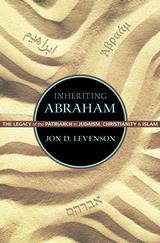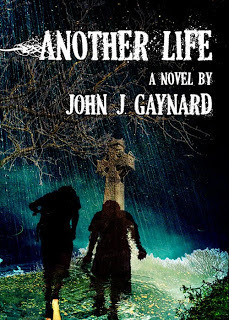Inheriting Abraham: Enlisting the Biblical Abraham as Peace Broker

In my first novel, Another Life, quite a bit of the suspicion for the murder revolved around an Abrahamic sect that had come into existence in the market town of Ballina in County Mayo, in the West of Ireland. The founders of the sect were looking for meaning, some mode of existence that would allow them to escape from their sordid and violent pasts as petty criminals and jailbirds and live a decent life. Although most of them were of a religious bent, they were all in agreement with one fact: they didn't want to hitch their broken down wagons to any form of modern religion, which had wandered far afield from its founder's vision, behaviour, actions and words. Thus the will not only to go back to Abraham, the patriarch of all three of the biggest monolatrous religions: Judaism, Christianity and Islam, but to go back to Abraham's mother and thus avoid the controversies introduced around his two sons, Ishmael and Isaac.
Given the research I put into writing that novel, I was particularly interested to see an article by Jon D. Levenson, about his latest book, in yesterday's edition of the Wall Street Journal. The title of the article was Enlisting the Biblical Abraham as Peace Broker and the title of Levenson's book is Inheriting Abraham: The Legacy of the Patriarch in in Judaism, Christianity and Islam.
Below are the first few paragraphs from Levenson's Wall Street Journal Article, which sum up exactly why the members of my sect in Ballina wished to go back to the source of monotheism:
Confronted with seemingly endless discord in the Middle East—much of it said to be rooted in religious difference—scholars and laymen alike have been promoting the idea of "Abrahamic religion." This is the notion that Judaism, Christianity and Islam are equally indebted to the figure of Abraham, the patriarch prominent in the scriptures of all three. Surely, the theory goes, the three communities can move toward much-needed reconciliation by considering their shared origins.
This is a message that the more fanatical members of each community need to hear, but their very fanaticism makes them unlikely to listen. One might also question whether theology, rather than culture and politics, is what lies at the heart of anti-Western and anti-Israeli rhetoric in the Middle East. Commonalities and cross-influences do exist among the three religions, but no less worthy of attention are the differences.
The idea of Abrahamic religion is usually tied up with the notion of Abraham as the first monotheist. To the best-selling author Bruce Feiler, Abraham was "the first person to understand that there is only one God," and this insight is "the shared endowment of the Abrahamic faiths."
But the familiar image of Abraham as the discoverer of the true God and the uncompromising opponent of idolatry isn't found in Genesis or anywhere else in the Hebrew Bible. It is an idea that originated in Judaism after most of the Hebrew Bible had been composed, and from there it spread into the literature of the Talmudic rabbis and later into the Quran, forming an important commonality between Judaism and Islam.
You can read the rest of the article here: Enlisting the Biblical Abraham as Peace Broker. I also encourage you to read the 95 comments (at last time of counting) the article has provoked. I hope the article and comments will encourage you to buy Jon D. Levenson's book and see how its scholarship coincides or differs from the erratic, and finally doomed, seeking for peace of the members of my sect in Ballina.

My novels, The Imitation of Patsy Burke, Another Life and Green Blood is for France, can be purchased from Amazon.com, Amazon.co.uk, Amazon.fr and Amazon.de in either print or electronic versions.
You can find them by following any of the links below:
Amazon.com (Amazon in the United States)
Amazon.co.uk (Amazon in the U.K. and Ireland)
Amazon.fr (Amazon in France)
Amazon.de (Amazon in Germany)







Published on November 13, 2012 03:02
No comments have been added yet.



